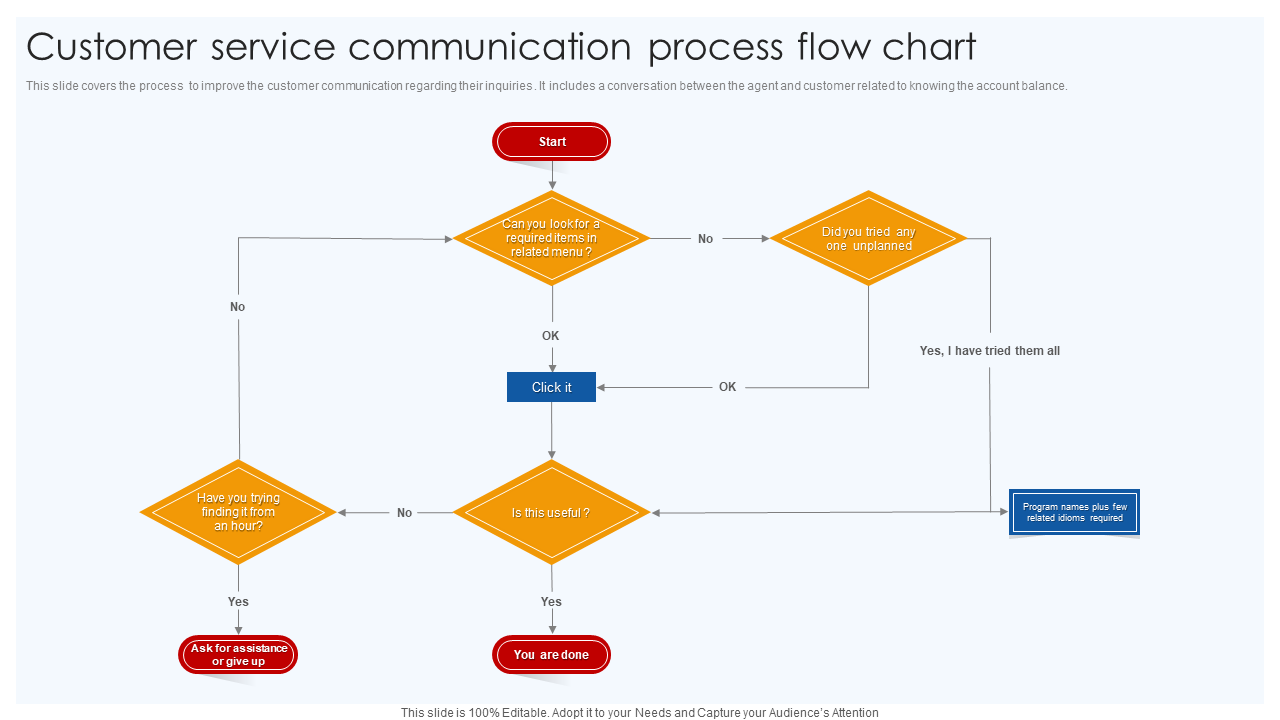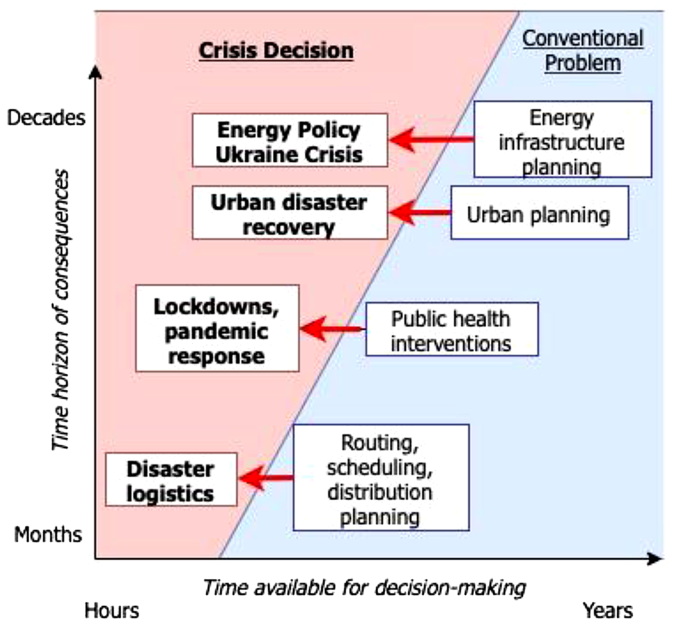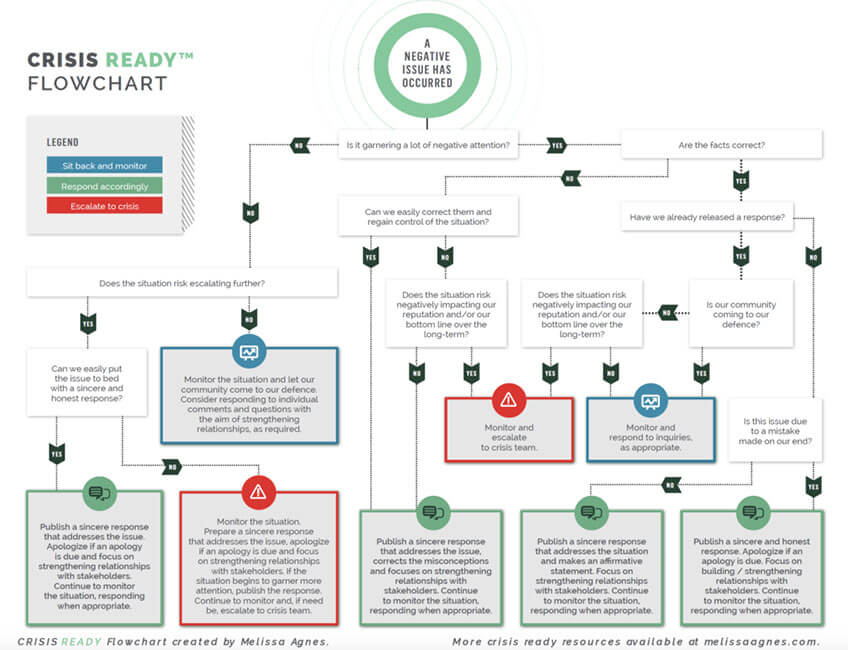In today's fast-paced business environment, effectively managing crises is vital for corporate communication officers and crisis managers. The integration of Artificial Intelligence (AI) in crisis management offers significant advantages, enabling organizations to respond more quickly and efficiently to emerging challenges. By utilizing AI technologies, companies can streamline their crisis response efforts, enhance the consistency of their communications, and improve overall decision-making processes. This article examines how AI reshapes crisis management, addresses potential challenges, and discusses practical applications supported by recent case studies.
During the COVID-19 pandemic, various organizations successfully implemented AI systems to enhance their crisis management strategies. These applications demonstrated AI's capability to automate communication, manage resources effectively, and provide real-time data analysis. With AI-driven tools, businesses can ensure consistent messaging, build public trust, and enhance their brand reputation. However, the integration of AI into existing infrastructures presents challenges—from compatibility issues with legacy systems to the need for comprehensive training. Understanding these dynamics allows stakeholders to harness AI's potential while navigating ethical considerations and public perceptions.
This article explores the benefits of AI in crisis management through key case studies, ethical considerations, integration challenges, and future trends. This provides valuable insights for organizations seeking to improve their crisis response capabilities.
How AI Transforms Crisis Management
AI technologies have fundamentally changed traditional crisis management approaches, allowing organizations to adopt more efficient and proactive strategies. Crisis management involves the planning and actions that organizations undertake to respond to unexpected adverse events, which can potentially lead to reputational damage and operational disruptions.
AI plays a crucial role in enhancing crisis response by analyzing vast amounts of data in real time, identifying emerging trends, and delivering actionable insights. By employing predictive analytics and automated messaging, AI enables organizations to promptly adjust their strategies, minimizing the impact of crises. Research from various case studies conducted during the COVID-19 pandemic illustrates AI's considerable influence in this field.
For example, Penn State University implemented an AI-driven Interactive Voice Response (IVR) system within its COVID-19 call center. This system effectively managed over 1,000 conversations, with approximately 81% handled independently without human intervention. Such technology not only reduced the workload on human agents but also provided accurate and consistent information to callers.
An infographic illustrating the differences between traditional crisis management methods and those enhanced by AI (Source: Piktochart)
The positive outcomes observed in cases like these underscore AI's potential to revolutionize the crisis management strategies of organizations and significantly enhance their operational efficiency.
The Power of AI in Ensuring Message Consistency
Ensuring consistent communication during crises is paramount, as misinformation can lead to public panic and reputational damage for organizations. AI provides effective solutions for maintaining message uniformity across various channels, thus reducing confusion and potential backlash.
AI can automate messaging and coordinate responses, ensuring that organizations convey accurate and timely information. For instance, the National Health Service (NHS) in the UK employed AI-driven resource management tools to anticipate healthcare demands more accurately. This proactive approach allowed them to communicate effectively with patients and stakeholders.
Moreover, AI enhances messaging consistency by analyzing public sentiment and adjusting communications accordingly. AI tools can gauge audience reactions to specific messages in real time, giving organizations the flexibility to pivot their strategies as needed.

A diagram depicting the communication flow in crisis situations, highlighting how AI can improve consistency (Source: SlideTeam)
With AI's support in managing information flow and communication strategies, organizations stand a greater chance of preserving their public image during crises and fostering trust among stakeholders.
Risks of Inaction: Why Ignoring AI Can Hurt Your Crisis Strategy
Neglecting to adopt AI technologies in crisis management exposes organizations to various risks. Without AI support, businesses may struggle with outdated response methods, leading to operational delays and flawed decision-making.
Organizations that overlook AI integration frequently face significant reputational damage due to inefficient crisis responses. Companies relying on conventional communication tools may miss critical information, resulting in delays and misinterpretations during sensitive periods.
Research indicates that organizations failing to utilize AI tools during crises can experience substantial backlash, as they are unable to keep pace with rapidly changing situations. This may lead to client dissatisfaction, a reduction in market share, and long-term brand damage. Statistics reveal that organizations embracing AI have seen notable reductions in crisis response times, along with increases in stakeholder trust and loyalty.

A scholarly visual showcasing data and insights on the consequences organizations face when lacking AI in their crisis response strategies (Source: Springer Nature)
In today's technology-driven landscape, organizations need to recognize that the risks associated with inaction can significantly outweigh any perceived challenges of integrating AI into their crisis management strategies.
Building Reputation with AI: Enhancing Brand Trust in Times of Crisis
AI's role in managing crisis communications extends beyond operational efficiency; it also has a considerable impact on brand reputation. Proactively identifying potential crises and addressing public concerns through AI solutions can lead to strengthened trust and rapport with stakeholders.
By utilizing AI to monitor social media sentiment, organizations can gain valuable insights into public perceptions and adjust their messaging accordingly. For instance, American Express leveraged AI to identify potential fraud during the pandemic, allowing them to maintain client trust while swiftly resolving disputes. This proactive approach resonated positively with their target audience, enhancing their reputation during a challenging environment.
Long-term brand trust relies on consistently addressing concerns and demonstrating the capacity to manage challenges effectively. By employing AI tools, organizations can mitigate fallout during crises, enabling them to proactively manage their reputations and ensure customer loyalty.

A flow chart illustrating steps organizations can take in crisis management to mitigate risks and enhance brand reputation (Source: SLD)
Incorporating AI technologies into crisis communication strategies not only addresses immediate operational needs but also fosters enduring stakeholder relationships, which are crucial for maintaining a strong brand reputation.
Starting Your AI Integration Journey: Practical Steps for Crisis Communication
For organizations aiming to adopt AI in crisis management, a structured integration process is essential. Corporate communication officers and crisis managers should consider several key steps to ensure seamless implementation.
Initially, organizations must assess their existing infrastructure and identify gaps that AI can address. This assessment may involve evaluating current communication methods and data management systems. Training staff in the application of AI technologies is crucial for creating a culture of adaptability and innovation. A recent survey indicated that approximately 78% of emergency managers felt unprepared to utilize AI effectively, highlighting the need for comprehensive training programs.
After establishing training, organizations should consider piloting small AI projects to gather insights and refine their strategies. As proof of concept is established, organizations can gradually scale up AI integration across their crisis management teams.
A flowchart demonstrating the process of integrating AI into crisis communications, outlining key steps for corporate communication officers (Source: Creately)
Successful implementation of AI in crisis communication requires a commitment to ongoing evaluation and adaptation while addressing the needs and concerns of all stakeholders.
The Future of Crisis Management: Emerging AI Technologies and Trends
The landscape of crisis management continues to evolve, driven by advancements in AI technologies. These innovations are expected to further redefine response strategies and shape the future capabilities of organizations.
Emerging AI technologies, such as multimodal systems that integrate diverse data sources, will enhance situational awareness during crises. For example, integrating predictive analytics and AI-driven decision-making will allow organizations to manage resources more effectively during emergencies, significantly improving outcomes.
Additionally, AI's predictive capabilities are poised to enhance the understanding of crisis triggers, thereby enabling organizations to allocate resources more effectively. Upcoming developments, including Brain-Computer Interfaces (BCIs) and Artificial General Intelligence (AGI), have the potential to revolutionize communication and collaboration in crisis management.

A timeline showing the evolution of AI technologies and their potential future applications in crisis management (Source: Weatherly Asset Management)
Organizations that remain agile and responsive to these trends will position themselves favorably in navigating future crises and optimizing operational effectiveness.
Conclusion
Incorporating AI into crisis management practices is essential for organizations aiming to thrive in today's dynamic landscape. The technology reshapes how businesses respond to emergencies, enhances communication, and fortifies brand reputation. While AI presents numerous advantages, challenges related to integration and ethical considerations must also be acknowledged.
Crisis management professionals are encouraged to embrace AI as a vital tool in their response strategies while maintaining awareness of its ethical implications and the importance of public perception. By continuously assessing the integration process and adapting to new developments, organizations can enhance their crisis management capabilities and improve overall operational resilience. AI’s potential is vast, making its effective implementation critical for shaping the future of crisis response.

Komentar (0)
Masuk untuk berpartisipasi dalam diskusi atau .